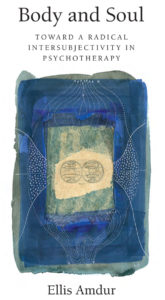Please contact Ellis Amdur Directly for Signed/Bulk Copies of This Work
The first two chapters of this small book are an inquiry into the nature of psychotherapy, an asymmetric dialogue, where one person, the therapist, literally attends to another. Weaving together overlapping perspectives from Emmanuel Levinas, Martin Heidegger, Maurice Merleau-Ponty and Martin Buber, Amdur asserts that the greatest gifts of therapy arise from a fundamental estrangement from each other. The realization of this unbridgeable distance, however close we may be, is a profound shock that gives birth to a genuine relationship, comprised of two beings, two bodies, not merging into one. It is the maintenance of separation that allows, in every dialogue, the birth of something new and unique in the world.
The chapters that follow bring these rarified notions to earth, through accounts of two therapeutic relationships: one, with an achingly melancholic man, so wounded that improvement was meaningless to him; the second, with a man struggling with anguish, his psychosis torturing him into a rage, in which others must die to pay for what he believed was done to him.
Ellis Amdur here strips psychotherapy of all technique and jargon. He asserts that it must be, at core, a willingness to wrestle with the unanswerable questions: What of my death? What of yours? What of my life? What of yours? -through which two beings can engage in therapeutic dialogue and change can occur.
This book is an unusual combination of lyric philosophical writing and harsh humanity, reeking, at times, of flesh and pain, yet finding, at other moments, traces of beauty, kindness, even love. There are no cures here, because some wounds may never heal. Nonetheless, a person’s integrity and unassailable dignity is to be found in stark moments where two people receive the ultimate in human gifts: the realization that we are always two, not one, and therefore, never alone.

